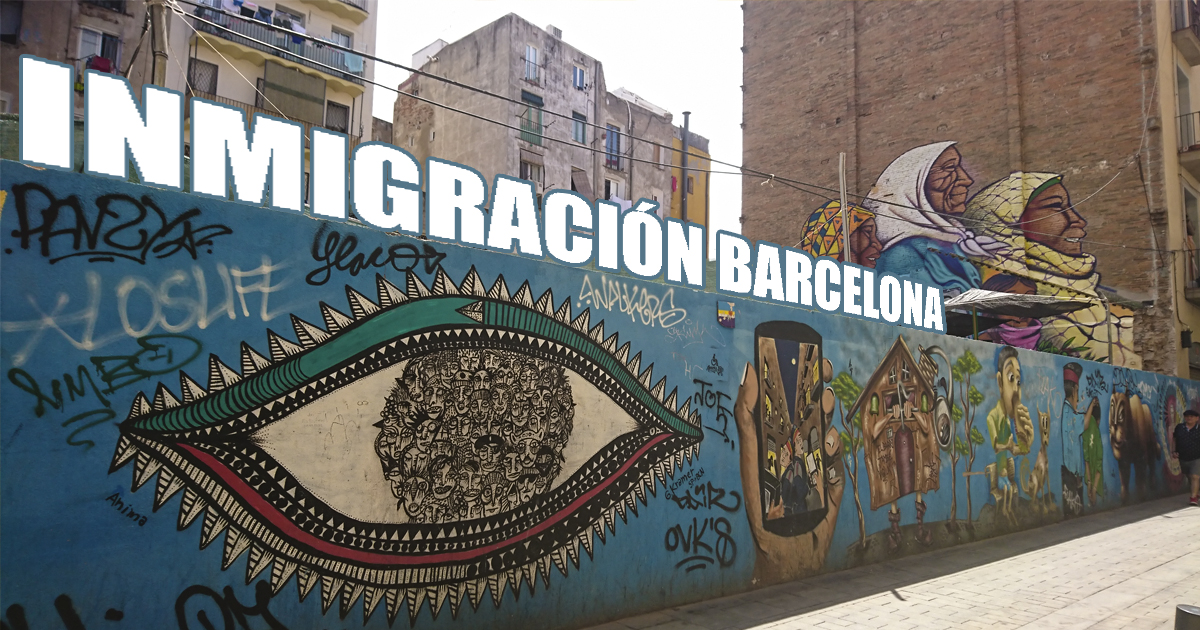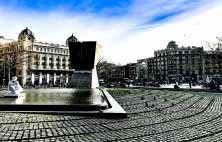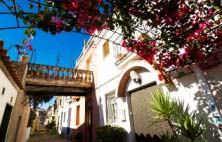Refugees in Barcelona
The news of the dead — as people flee their countries around the Mediterranean to reach Europe — doesn't cease. If they stop being seen, it’s because the media have stopped taking an interest in them. We are facing the largest population exodus since the Second World War and the governments are either doing nothing or not enough.
The Barcelona City Council are aware of this problem — understanding the need for these people to find shelter and the scourge that governments in various countries don't take effective action — and have decided to address the matter. The result is Barcelona Ciutat Refugi.
This is a platform that helps people who are escaping hunger, wars and misery. It aims to give shelter to the maximum number of people possible. It's also a site that promotes citizen awareness.
Perhaps it’s thanks to this initiative, or perhaps it's the warmth of the people of Barcelona, who have decided to deal with this problem themselves. That’s how on 18 February 2017, Barcelona gathered in the biggest European demonstration in favour of the right to accept refugees.
-
 The Refugee Crisis in Barcelona Barcelona wants to welcome refugees and thus help in one of the greatest tragedies that mankind...
The Refugee Crisis in Barcelona Barcelona wants to welcome refugees and thus help in one of the greatest tragedies that mankind...
Large number of deaths
SAIER (Servei d’Atenció a Immigrants, Emigrants i Refugiats) have attended to around 1,400 refugees who came to Barcelona in 2015 on their own accord — alone or as a family. As stated in their report, the arrivals don't stop and have multiplied by four in the last three years. The majority come from Ukraine and Syria, but there are many other nationalities.
The International Organisation for Migration (OIM), say 5,079 people died in 2016 seeking asylum in different parts of the world. So far this year, in October 2017 there have been 2,754 people who were travelling in search of life but found death.
Probably, one of the major problems that destroys the world today are the wars which force thousands of people to abandon their home and seek refuge in other countries. Meanwhile, the governments put barriers in place and cover the eyes of the population with useless topics, in order to forget the deaths of the people that have arms, legs and eyes like them, but perhaps, not the same heart.
The Mediterranean sea is claiming thousands of lives a year. Travellers venture in boats of low quality that are not suitable for exploits of such high calibre, forced to do so. Deeds such as crossing distances by sea trying to reach the beaches of the “first world” that closes its doors or, as shameful as it is, tries to shoot them when they reach land.
Reasons to emigrate
- Wars
- Hunger
- Death
- Destruction of homes
- Uncertain future.
Consequences
- Deaths
- Overcrowding in the cramped immigrants and refugees camps
- Deportations
- Poverty
- Prejudice from local people
- Racism and growth for political parties of extreme anti-immigration nature
Next we will review the migratory movements over the last few centuries — specifically during the 19th, 20th and 21st centuries — throughout the history of Barcelona. This could be easily applied to any part of the world. You see that all the migrations, no matter the place or time, holds many similarities.
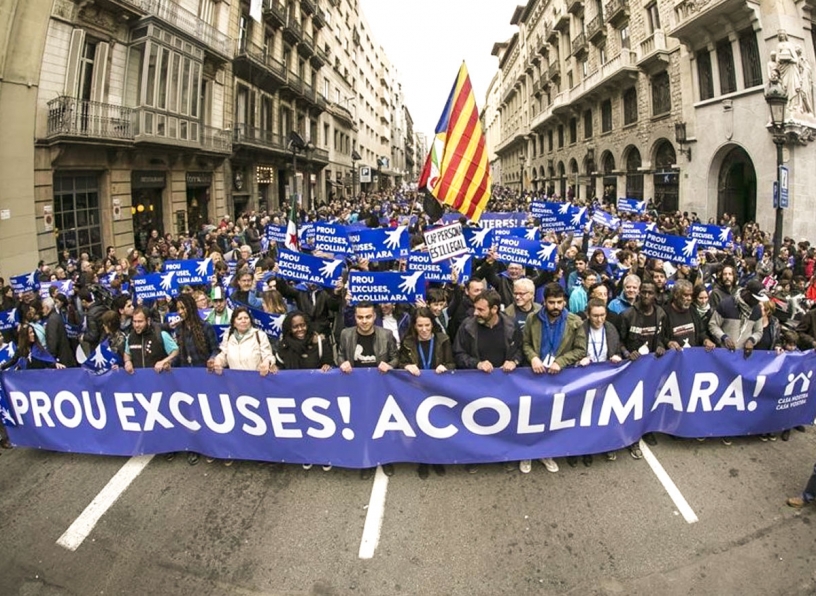
End of the 19th century – Beginning of the 20th century
When emigration was higher than immigration
With the rumours and testimonies from people that had gone to “make the Americas” and returned having amassed great fortune, many abandoned their homes in Spain and embarked in search of better luck. Barcelona, as a city with a port and access to the sea, saw lots of locals wanting to leave behind the poverty with dreams of a prosperous life.
Reasons to emigrate
- Wars
- Hunger
- Uncertain future
- Hope of a better life
Consequences
- Prejudices at the host location
- Hunger, although in some cases, success was found
- Uprooting
This is an episode that we should remember more and keep in mind. We often forget that history takes many turns. Those who today live serenely in their houses, had ancestors who came from hardship afar. For any reason, when you least expect it, your world can change and it may be you who has to leave or flee.
ANECDOTE: Curiously, Emilio Sánchez Pastor, writer; journalist; and Spanish politician wrote at the beginning of this time in 'La Vanguardia' regarding this topic. He wrote “We are interested in emigration, because in our country there is no immigration”.
Between 1880 and 1930, emigration out of Spain reached high figures. In 1912, there is evidence that there was around 250,000 people who left. While this was happening there were other movements taking place, emigration from the countryside to the city and emigration to Catalonia from other parts of Spain.
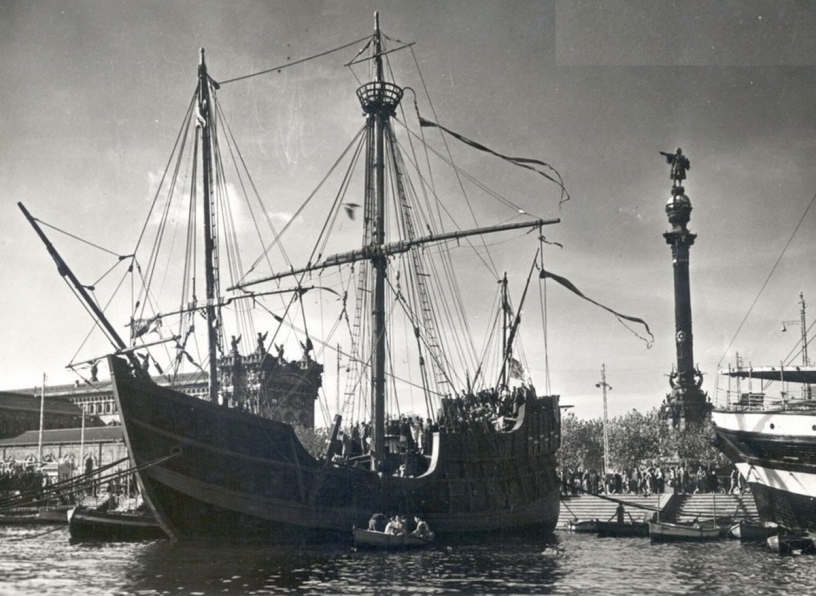
Farmers become labourers: Beginning of the 20th century
From countryside to city
Barcelona was a booming city. Events such as the 1929 Barcelona International Exposition, industrialisation works such as the metro and a large increase in housing to expand the city offered a lot of work to these people. However, such a surge of people had not been contemplated or anticipated, therefore the city was overwhelmed.
If you come to visit the capital of Catalonia, we will help you to find the best apartments for rent Barcelona. We offer apartments of different types, renovated and well furnished in all areas of Barcelona!
Between 1900 and 1910, in Barcelona there was 710,335 inhabitants, of which 43.6% were native to the city, 19.2% from the rest of Catalonia and 29.6% from the rest of Spain. Barcelona, incapable of taking in so many immigrants, started to contemplate the creation of the first shanty towns. It's estimated that in 1922 there were around 4,000 substandard houses. These ‘houses’ would hold a large number of people, even subletting small spaces inside them, thousands of people lived in horrific conditions.
In 1902, an Andalusian peasant could earn a daily wage of between 1 and 2.25 pesetas and was out of work between 100 and 150 days a year. On the other hand, in Catalonia, a worker earned 3 pesetas a day and had much more job security. Aspects like this were decisive factors for the movement of people that was starting to happen at the time.
Reasons to emigrate
- Poverty
- Hunger
- Uncertain future
- Hope of a better life
Consequences
- Overcrowding
- Poverty
- Prejudices from the local population
Interestingly, this population movement was all within the borders of Spain. That is until the Spanish Civil War arrived, when the profile of immigration changed.
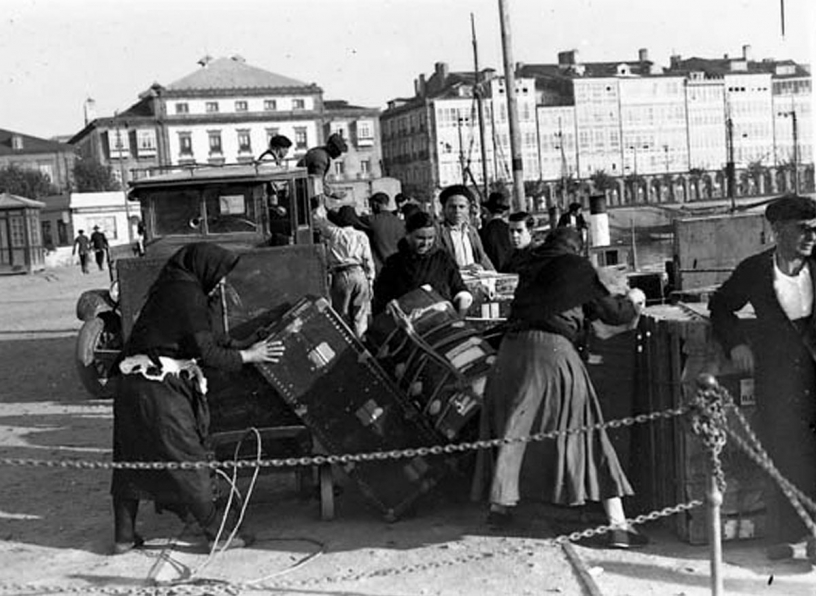
Civil War and Postwar: 1936–1939 and the '40s
Exile and Repression
At the heart of the Civil War that destroyed Spain during 1936–1939, many people saw Barcelona as a point of access close to the border with France. From here they could flee the horde of Franco first, and the dictatorship, afterwards.
There were two clear and new migratory movements. Those who were still coming to Barcelona, were now not only searching for better opportunities, but also fleeing repression. In a large city it was easier to go unnoticed and disappear if in their town they were noticeable for their political affiliation.
Once again, the sea, the proximity to the French border, makes Barcelona an access point to flee. A place to set off from and become an emigrant.
Reasons to emigrate
- War
- Repression
Consequences
- Exile
- Cramped camps of exiles
- Uncertain future
- Uprooting from their home
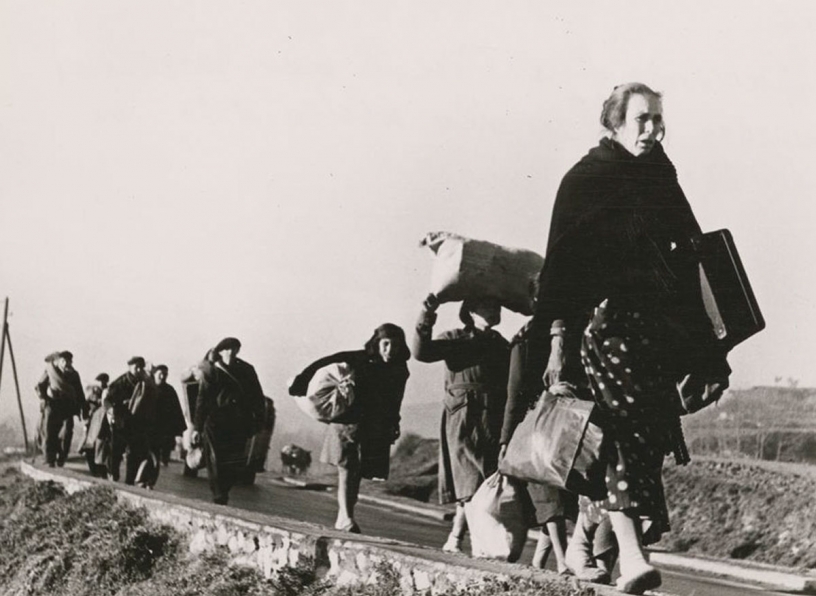
Barcelona welcomes immigrants: '50s, '60s and '70s
Barcelona, industrial city, needs workforce
To know a little more about the immigration related to Barcelona, we turn to the Museo d’historia de la inmigración de Catalunya (MhiC). After reviewing the migratory movements throughout the history of humanity, we focus on the immigration that happened mid-way through the 20th century in Barcelona, as well as in Catalan cities. Interestingly, that population movement remained, like at the beginning of the century, within the borders of the same country, of Spain.
After the postwar and during the '50s–'60s, a wave of immigrants coming from other regions of the country, especially from Andalucia, Murcia and Extremadura, searched for the start of a new life in Barcelona, a prosperous city with industry, work and opportunities.
People flocked on crowded trains. They met with what little they had and embarked on a feat that, although promised to be temporary, ended up being forever. Many of the people were, then, came looking for prosperity and later return to their land, but finally ended up staying here, bringing their families as well.
As we learned thanks to the MhiC, based in Sant Adriá del Besós, a city bordering Barcelona, famous, among other things, for its blend of residents, these immigrants from Spain that arrived in Barcelona were punished by the Franco regime.
The population movement from Spain towards Catalonia was punished by the dictatorship. This migration was not predicted by the overflowing city, so many of them, who were intercepted in the station, were confined to a cramped pavilion and subsequently returned to their land. Something that you may see today.
Reasons to emigrate
- Poverty
- Hunger
- Uncertain future
- Hope of a better life
Consequences
- Deportations
- Hunger
- Overcrowding
- Prejudice from the local population
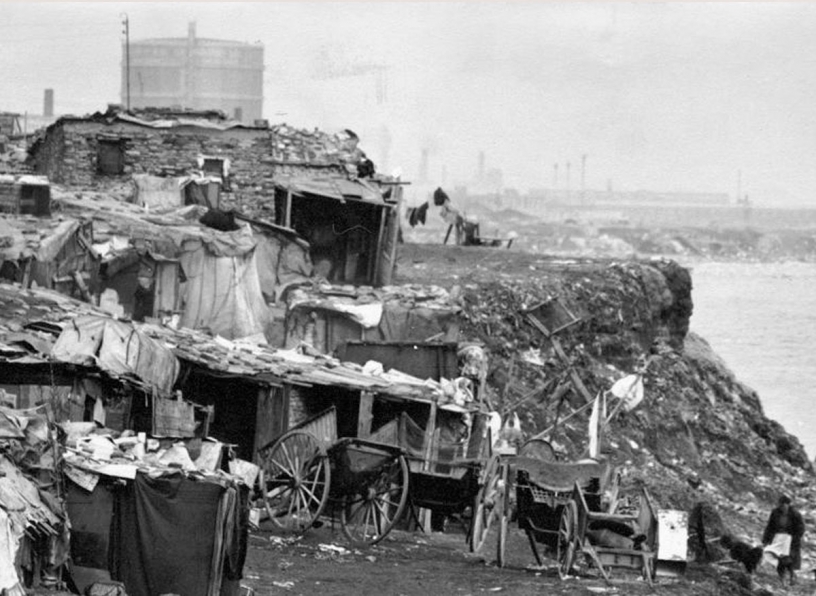
Excursions in Barcelona
To make the most of Barcelona and fill your trip with unforgettable experiences and emotions, we offer you the excursions through the Catalan capital organized by our friends - the GetYourGuide team. Choose your excursion and fall in love with Barcelona:
Immigrants from other country: '80s–'90s
Foreign immigration started to become evident
With the end of the dictatorship and entry into Europe, Spain as well as Catalonia started to experience something new and strange. Immigrants from other countries were becoming a noticeable part of society on a wider scale. At first, access was easy, but as arrivals started to increase, the law and the Constitution was modified. Once again, there was prejudice against foreigners.
Those who were once immigrants themselves are now not. Now, the ones who come from further away are feared. Those who came in packs themselves years ago and the following generation, have already forgotten this and attack foreigners in the same way they were attacked.
Interestingly, in the first autonomous elections in Catalonia the Andalusian Socialist Party presented themselves. With 72,071 votes obtained, they won 2.64% and two seats. In Barcelona they obtained 63,672 votes. Even though they are now integrated into the population, their situation remained on the table, but it ended up fading into the background to deal with the 'new citizens' of Barcelona instead.
In August 2001, Barcelona City Council took measures against the so-called 'black corner'. In Plaça de Catalunya, an important number of sub-Saharan people were expelled from their first point of contact in the city and imprisoned at a detention centre. Later they would be deported to their home countries. Once again, history repeats itself, reminiscent of previous episodes.
Reasons to emigrate
- Poverty
- Hunger
- Wars
- Uncertain future
- Hope of a better life
Consequences
- Deportation
- Hunger
- Overcrowding
- Prejudice from local people
- Persecution from the police
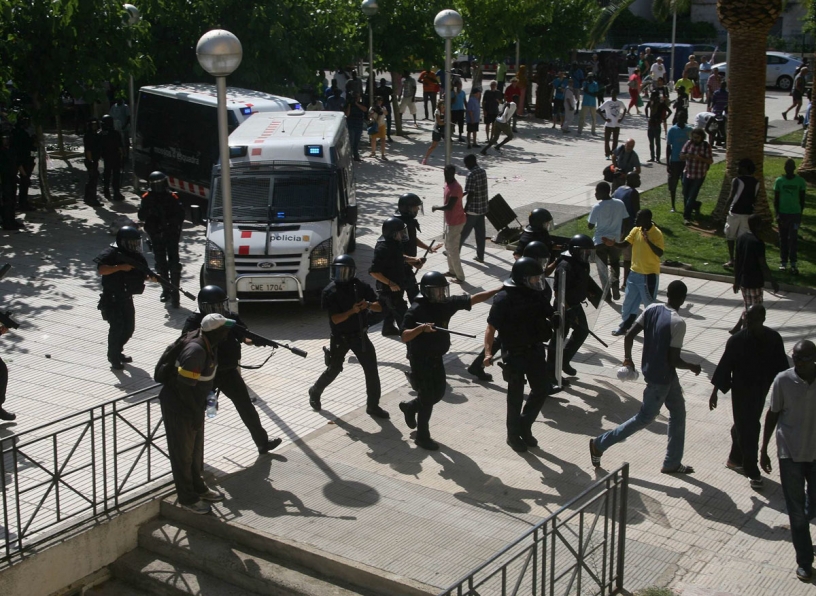
Immigrants arrive in the '90s, create the brand Top Manta
Immigrants who ran and are still on the run from the police for selling pirate CDs, bags, shoes and different merchandise, are now starring in the news. On 10 October 2015, the Popular Street Vendors Union was created in Barcelona. In a statement given by the creators, they argued that the emergence of the union responds to years of darkness, persecutions and racism on the part of the police. The sellers came together and realised, that separately they were vulnerable, but that together and organised they could stop the repression and persecutions.
Now, in July 2017, they created their own clothing brand, Top Manta. An original and creative idea to defend their interests and escape from being seen as criminals who are dedicated to the imitation of other brands.
The attractive shape of the logo is not casual. It includes two icons, the cloths used and the sea. Aziz Fayé, spokesperson for the Popular Street Vendors Union of Barcelona, in an interview with El Mundo claimed that “to be a street seller is a pride”. They are street sellers, the lifting of the cloth when the police come is very meaningful to them. On the other hand, there’s the sea. Many of those who arrive risking their life on the seas, which is symbolised by the wave in the logo, they want to reference and give tribute to it.
As they said in the statement back in 2015 when creating the union, "To immigrate and try to survive is not a crime". The news of the new brand shows their longing for integration. Tired of prejudice, they try to become citizens, like you and me.

Conclusion
Negative consequences
Conflicts are all the same. The reasons to emigrate and its consequences, if we look throughout the article, resemble and coincide in practically all time periods. Reasons being hunger, wars and search for a better future.
The consequences are housing problems and overcrowding, lack of resources to deal with the cultural diversity, lack of job regulation to prevent job insecurity for those who come and those already there, and in an intolerant environment for outsiders.
History shows us that after so many years, we have been capable of creating useful mechanisms to resolve conflicts that cause mass movements of people. We've yet to learn that migrations are unstoppable, or that arrivals are held prisoner. But… What are the positive consequences?
Positive consequences
Cultures are born through a mix of different traditions that have been contributed by each group of people over the years throughout the region. When a community claims its own identity, it's promoting differentiation from others. It has been people from other places who arrive in this land that have been marking and defining their reality now. Finally, to stop foreigners would be culturally limiting. It would go against human nature and against common sense to advance, learn and improve.
In the end, we all evolved from a common ancestor. We are all equal.

